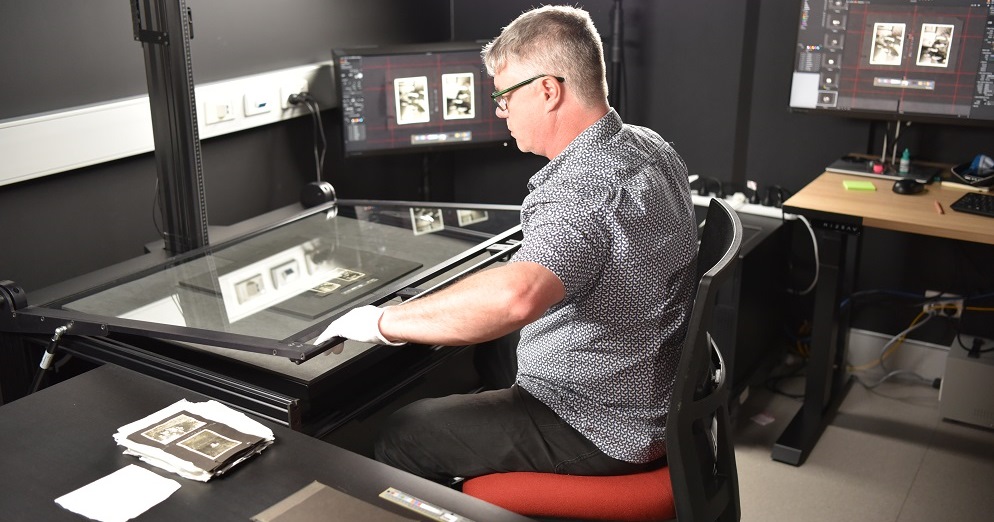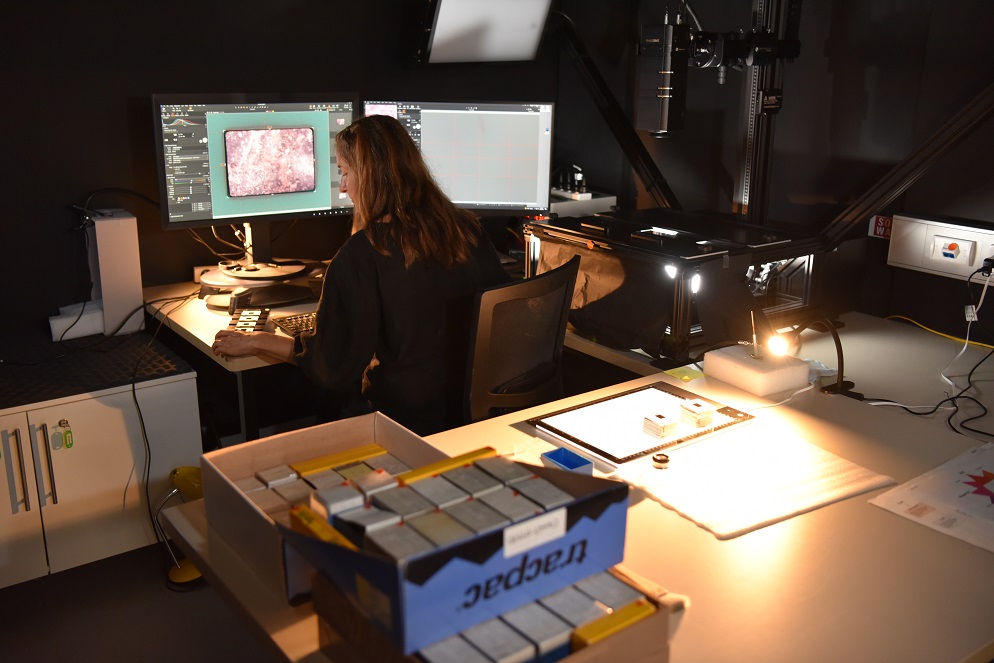Just one year into its operation, a multi-university digitisation project is rapidly producing new insights into WA’s history.
The Digitisation Centre of WA, a joint venture between all five WA universities, the State Library of Western Australia and the Western Australian Museum, was launched last year on the back of a Linkage grant from the Australian Research Council and in-kind funding from the project partners.
A bold collaborative project to start digitising – and in many cases uncovering – significant archival material housed in various collections across WA is already resulting in new and novel research outcomes not previously explored.
 Image: Paper archives being scanned at the Digitisation Centre of WA.
Image: Paper archives being scanned at the Digitisation Centre of WA.
Early research outputs have included a collaborative unearthing of the story of Moon Chow, believed to be the first Chinese immigrant to WA, as well as a contextual analysis of a large collection of crayon drawings by Aboriginal men living at Birrundudu in 1945.
The Moon Chow project won the researchers a subsequent grant to do further research into Chinese-West Australian history – an example of the potential kick-on effects of digitisation-powered research.
Digitisation Centre of WA Chair Professor Benjamin Smith, who is also a Professor of Archaeology at UWA, says the centre is already demonstrating the immeasurable value of investing in world-class archival standard digitisation.
“This is creating new potential to generate all sorts of new research and international collaborations,” Professor Smith says. “Every day it seems there is something surprising or unique brought to the centre.
“For example, we have started digitising a collection of almost 20,000 records held by His Majesty’s Theatre – basically stored in a dungeon in the middle of Perth. There is every single poster and catalogue produced by the theatre since day one. It’s quite incredible.”
While the digitisation lab itself is co-operated by all the project partners, each university has its own discovery platform to access its collections. UWA’s platform – known as UWA Collected – provides access to such collections as the Callaway Centre, a vast and historically significant body of music history archives, the Australian Performing Arts Collection, and a large series of rare and preserved maps.
Professor Smith, who previously ran a digitisation centre in Africa, says while WA was comparatively slow to start digitising its historical remnants, the delay has worked in its favour.

Image: A scanning station at the Digitisation Centre of WA.
“A lot of the early labs established in Europe didn’t do it to a high enough quality and they’ve now had to re-digitise. The technology now is of the highest preservation standard – the resolution wars are over – and so here in WA we are using the very best equipment there is.
“We liaised with the New York Public Library, which has one of the largest digitisation centres in the world, and ended up using their system and were the first in Australia to do so.”
Another unique aspect of the Digitisation Centre of WA is the nexus created between librarians and academics. Professor Smith explains: “It’s rare for researchers to work with librarians in this way. Normally the library is just a service platform for researchers, but the librarians within our centre are absolutely critical to the centre’s operations because they essentially control the discovery platform.”
It will take decades to digitise the records of a state so rich in historical archives, so early prioritisation is being given to the under-funded area of Humanities, Arts and Social Science research. After that, collections in STEM, botany and other research areas will be digitised.
Professor Smith says one of the biggest challenges for a state like WA is the fact so many important collections are locked up in regional and remote areas, housed by groups and organisations that simply don’t have the money to digitise.
“This is something we’re trying to overcome,” he says. “For example, I collaborated with Murdoch University and ECU to obtain an ARC Linkage grant to digitise all the collections in the state’s Aboriginal language centres because they’re increasingly under threat.”
